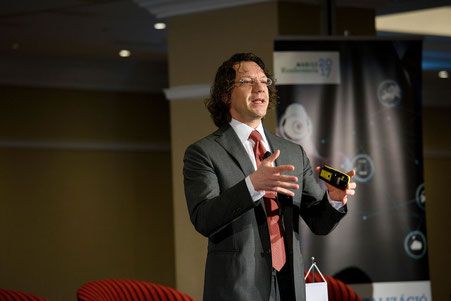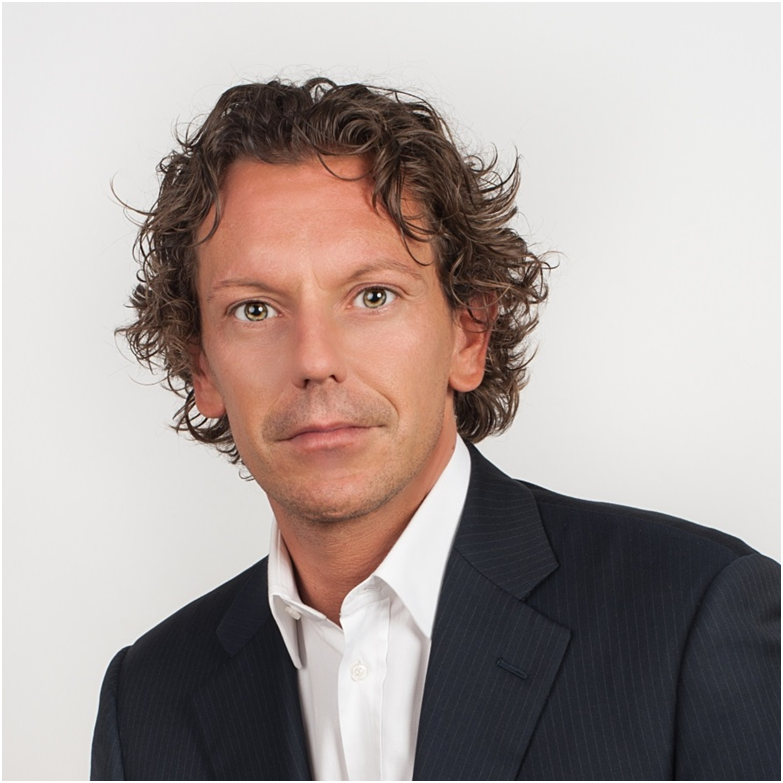
How often do you have the chance to see one insurtech expert interview another. Well here is a piece that features Matteo Carbone, Insurance Thought Leader and Founder of the IoT Insurance Observatory (formely Connected Insurance Observatory), as interviewee and Robin Keira, influencer, author and speaker on insurtech, asking the questions.
R: To give a short personal impression: let us know what are your top 3 tech gadgets one needs to have?
M: Well, a smartphone, a portable power bank...and a second portable power bank (bigger than the first one).
Ok, I admit having a problem with the connectivity...if now I'm looking at the battery usage of my iPhone I can see that I spent in front of the screen 8 hours in the last 24 hours, and 53 in the last 7 days. I'm for 30% of my time (also) in front of the phone screen.
It could sound like it's a lot of time and so something is stealing time from something else. In part it could be true, but I believe there are more opportunities you are exploiting in this way. Let's think about all the spare time when you are on a taxi, on an elevator, waiting for a flight, walking on the street...I cannot afford to let my battery run out.
R: In addition of being one of my personal heroes, you are one of the most known faces and most influential voices in insurtech and telematics. How did that happen and what motivated you to take on such a public role?
M: It has happened, it was not planned or created with a structured and rational approach in order to achieve a goal. You start to share ideas, which generates some feedback and you learn. Than you enjoy it so you repeat, you work hard to do it better...and one day it starts to grow exponentially.
This is what has happened to me. It would not have happened without the network of almost 140.000 passionate insurance experts that have discussed with me daily on Linkedin. An important part of the time I'm spending in front of the screen of my phone is dedicated to Linkedin. Honestly, I don't know where I'm going...but I'm learning a lot and I’m incredibly enjoying this journey.
R: What is your analysis of the fintech and insurtech ecosystem - especially in your home market Italy?
M: Well, when someone is asking me "where is home?" my instinctive answer is "airport". In the last 12 months, I have taken almost 200 flights and last year I spent more nights in a hotel in New York than in my house in Milan. There were 50 organizations at my IoT Insurance Observatory in 2017 between Europe and North America: I've spent each week going to their headquarters to discuss the IoT opportunity for the insurance sector. We did more than 350 hours of workshops and I had the privilege to discuss with hundreds of insurance executives in more than 10 different countries.
Back to your question, the Italian market is the best practice for the most mature insurtech trend: auto telematics! There are currently more than 7 million cars sending data daily to the insurance company, this represents 20% of the private cars insured in Italy.
R: Since you travel so much and gain insights into so many markets: What could we all learn from each other?
M: There is no such thing as one size fits all approach: each insurance market has its specificity due to culture, country laws, business practices, insurance regulation.To sell insurance is not like selling smartphones and this is to make a parallel between two things which are relevant in my day to day life.
I've been so lucky to be exposed to so many different markets. So I believe there is an incredible opportunity to cross-fertilize the ideas between different business lines and between different markets. But a deep knowledge and understanding of the market specificities are necessary to concretize this opportunity.
R: A lot of traditional companies are struggling to adapt to the rapid changes we witness today. In your opinion, what do you think are the biggest chances for traditional companies to use the digital transformation? What are the biggest hurdles?
M: I believe it’s unthinkable for an insurance company today not to pose the question of how to evolve its own model by thinking which modules within their value chain should be transformed or reinvented via technology and data usage. The key thesis of my book dedicated to Insurtech is: "Insurtech is the superpower for assessing, managing and transferring risks"
R: About the. book you mentioned. : “All the Insurance Players Will Be Insurtech: A wave of innovation is finally reshaping the insurance industry” (available in the USA, Germany, UK, Italy, France & Spain). This is your first your first book, published together with Andrea Silvello. Tell us who should buy and why.
M: Everyone is working or is interested in the insurance sector. Because all the players in the insurance arena will be InsurTech, meaning organizations where technology will prevail as the key enabler of the achievement of strategic goals.
This book has been written from a specific point of view, the love for the insurance sector. We didn't look for the disruption, on the contrary we focused on the way insurtech can make the insurance sector stronger and therefore more capable of achieving its strategic goal: to protect the way people live!
R: Please share what motivated you and Andrea to write it - a book in the era of video-blogs and podcasts?
M: As most of the things which happen in my life, it was not planned. One day Andrea told me there wasn't a book dedicated to insurtech...so we decided to do it.
R: My last three questions are short:
What are your Top 3 Do’s and Dont’s for insurance c-suite?
M: Do's:
- Be ambitious about the future of the insurance sector
- Be curious about insurtech: how technology can make their company better in assessing, managing and transferring risks
- Be skeptical towards any initiatives without impact on productivity (your top line), profitability (of your book of business), proximity (to the client) and persistency (of your book of business)
Dont’s
- Think irrelevancy (invisible coverage, automatic bundling with purchase of product and service) is the inevitable destiny of your company.
- Follow the hype (driverless world will arrive, but autonomous cars level 5 will be not a material part of any book of business for decades).
- Let the personal agenda of someone to stop the change.
R: What would you advise insurtech startup founders?
M: Two things:
- You have to study the basics of the insurance business, do your homework.
- Let's go out and talk to people. Consumers do what they want, not what we pretend they want.
R: What do you advise young people when looking back at your impressive career?
Enjoy the journey, no one really knows the destination.
The article was originally published on Digitalscouting.de



